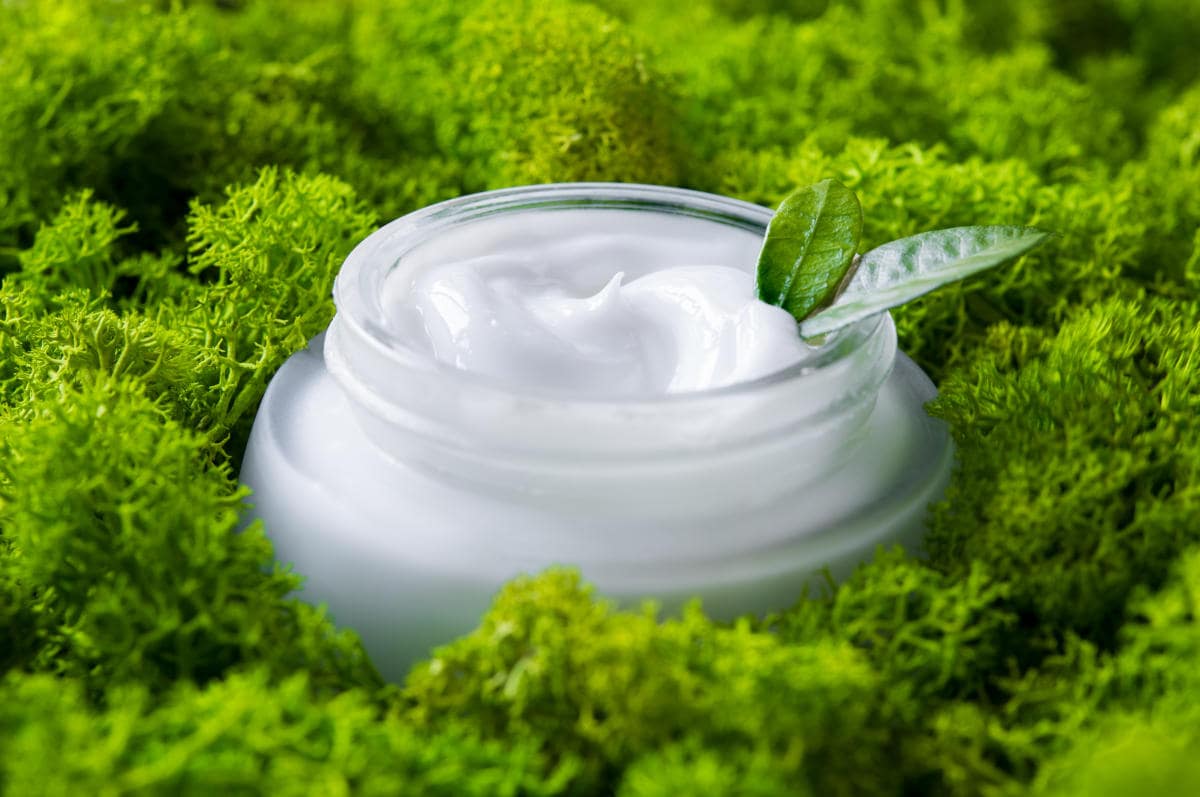Organic certification has a strong presence in the food industry. Many consumers prefer fruit, vegetables, food and cooked products that are certified organic. The label is also being used in other sectors, such as ready-to-wear clothing and cosmetics. Much more than a commercial argument, organic farming demonstrates the strong commitment of a growing part of the population.
1. Significant differences between natural and organic cosmetics
The distinction between natural and organic cosmetics is simple:
- Natural cosmetic products contain a high proportion of natural ingredients of plant, animal or mineral origin. They limit as much as possible the use of synthetic ingredients, especially those from the petrochemical industry. However, they can include plants, milk products or egg products from intensive agriculture
- Organic cosmetics go further, with formulations that use natural products from organic farming.
A natural cosmetic product may not be organic, whereas an organic cosmetic product is also a natural cosmetic product!
2. The challenges of organically produced ingredients
Health impact is the main argument for choosing organic cosmetic ingredients. Creams, serums, skincare products, lotions, cosmetics and make-up penetrate the skin and can pass into the body. By choosing cosmetic products with an organic label, consumers want to avoid the absorption of petrochemicals, which they may perceive as controversial, irritating, allergenic, harmful or carcinogenic.
In reality, the choice of a cosmetic product made with organically produced ingredients is not simply a matter of avoiding substances that raise questions. Natural ingredients from conventional agriculture already offer a healthy alternative to synthetic molecules.
Consuming organic is meaningful. The benefits of this type of agriculture are systemic and global. The strict limitation on the use of synthetic chemicals helps to preserve water resources. Rivers and water tables are thus protected from pesticides and nitrogenous fertilisers. Ecosystems benefit, as do our societies, which reduce the costs associated with water purification.
This approach also allows us to take care of biodiversity. The exclusive use of natural phytosanitary products, authorised by the European regulation governing organic farming, promotes the health of earthworms and pollinating insects, including bee colonies. Birds, whose populations are collapsing in Europe, thus benefit from more abundant and uncontaminated prey.
3. Certifications for cosmetic products
There are several labels that guarantee your customers cosmetic products that use organically produced ingredients.
The COSMOS NATURAL certification label
The COSMOS NATURAL signature guarantees the natural character of a finished cosmetic product, and provides consumers with numerous guarantees:
- The absence of petrochemical ingredients, including parabens, phenoxyethanol, perfumes and synthetic dyes (only certain preservatives are authorised);
- The absence of products derived from genetically modified organisms (GMOs);
- The use of production and transformation processes that respect both the environment and human health;
- A respect for biodiversity, for a minimal impact on ecosystems;
- Responsible use of natural resources;
- Adherence to the concept of green chemistry, which favours products and processes that reduce or eliminate the use and synthesis of hazardous substances whenever possible;
- The preservation and presentation of the final cosmetic product in recyclable packaging.
A COSMOS NATURAL certified cosmetic product is therefore composed of ingredients of natural origin, with the exception of a very restrictive list of approved ingredients, which are allowed in limited quantities. In fact, COSMOS NATURAL-certified products contain 99% of natural ingredients. But COSMOS NATURAL certification does not guarantee organic origin. For that you need to look for a COSMOS ORGANIC certified product.
The COSMOS ORGANIC certification label
The COSMOS ORGANIC signature guarantees the organic nature of a finished cosmetic product:
- 95% of the ingredients are of natural origin;
- 95% of the plants contained are organically grown;
- A minimum of 20% of organic ingredients (10% for rinse-off products) is contained.
Water or minerals are natural ingredients, but they cannot be considered organic. This is because they are not obtained through an agricultural production process. Water often plays a major role in cosmetic formulations. However, COSMOS ORGANIC-certified water-free or mineral products, such as certain massage oils, can be composed of 100% of organic ingredients.
The name of the certification body is indicated next to the COSMOS NATURAL or COSMOS ORGANIC logo. These logos indicate certification by ECOCERT:
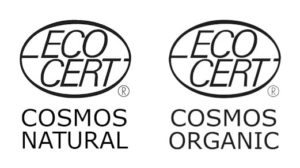
The Cosmebio label
The Cosmebio association has been promoting the development of organic and natural cosmetics since 2002. Today, Cosmebio offers several labels, identified by distinct logos.
The Cosmetique Bio Charte Cosmebio label promotes compliance with the first set of specifications established by the association:
- 95% minimum of ingredients of natural origin for the entire product
- 95% minimum of ingredients from organic farming for all plants
- 10% minimum of organic ingredients in the total product (including water and minerals)
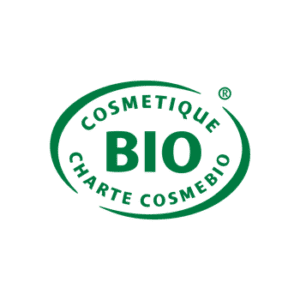
The Cosmebio association is also a certifying body for the COSMOS NATURAL and COSMOS ORGANIC signatures. These labels guarantee compliance with the COSMOS specifications, which we presented earlier:
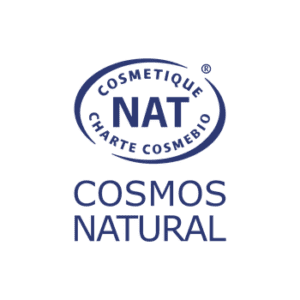
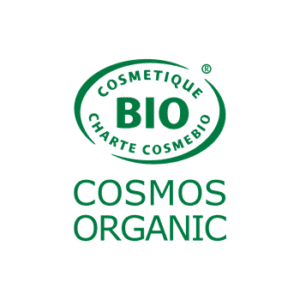
The Nature & Progrès reference
Since 1964, the Nature & Progrès association has been working to promote agrobiology and biodynamics in France and Belgium. In particular, it offers a label dedicated to cosmetics.
By choosing a cosmetic product that complies with the Nature & Progrès charter, you can guarantee your customers a finished product subject to strict specifications. It will be a product:
- whose plant ingredients are primarily Nature & Progrès certified, or failing that, Simples, Déméter, or certified Organic Agriculture (European directive n°834/2007);
- which does not contain genetically modified organisms (GMOs), palm oil or palm oil derivatives, raw materials from endangered species, raw materials of animal origin (except honey, royal jelly, wax, milk products, egg products and lanolin);
- Which does not use ingredients of petrochemical origin (with the exception of a tolerance for three synthetic preservatives), silicone-based lubricants, parabens, sequestrants, phosphates, mineral acids;
- which bans synthetic products (dyes, perfumes, polymers, fats, oils, solvents, vitamins E and C, essential oils, UV filters and absorbers);
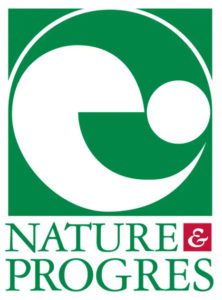
4. Natural and organic cosmetic ingredients with Sophim
You want to create or develop a range of organic cosmetic products, and you are looking for a quality, committed and responsible supplier? We offer a wide choice of natural cosmetic ingredients, a wide part of them being COSMOS certified. Some references are available in their organic version, and meet the specifications of the strictest labels. In particular, you will find a range of certified organic cosmetic vegetable oils, produced in accordance with local production methods.
You can contact your usual interlocutor at Sophim, call us at (+33)4 92 33 17 17 or send us a message online.
Category: Cosmetics Expertise






